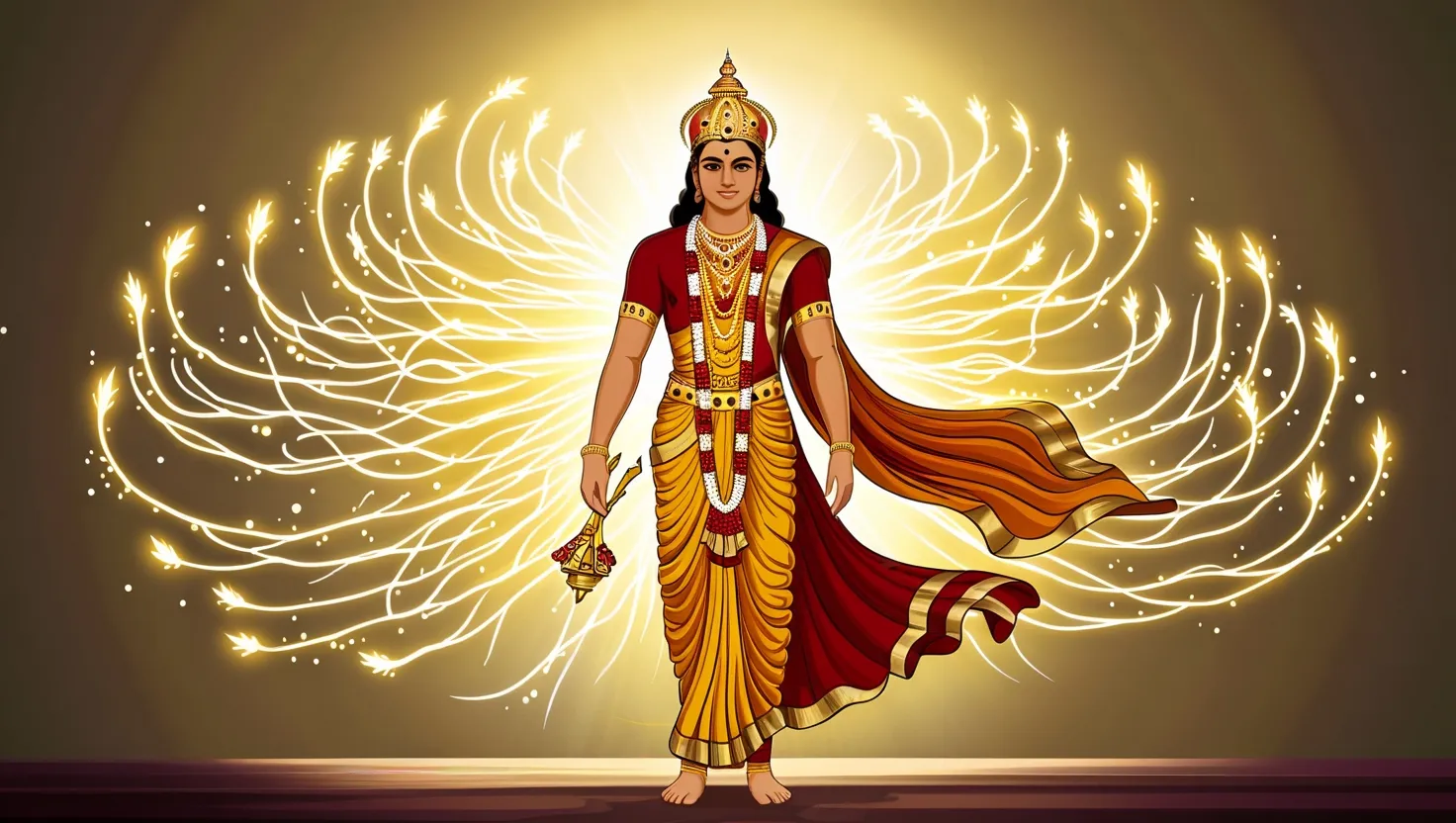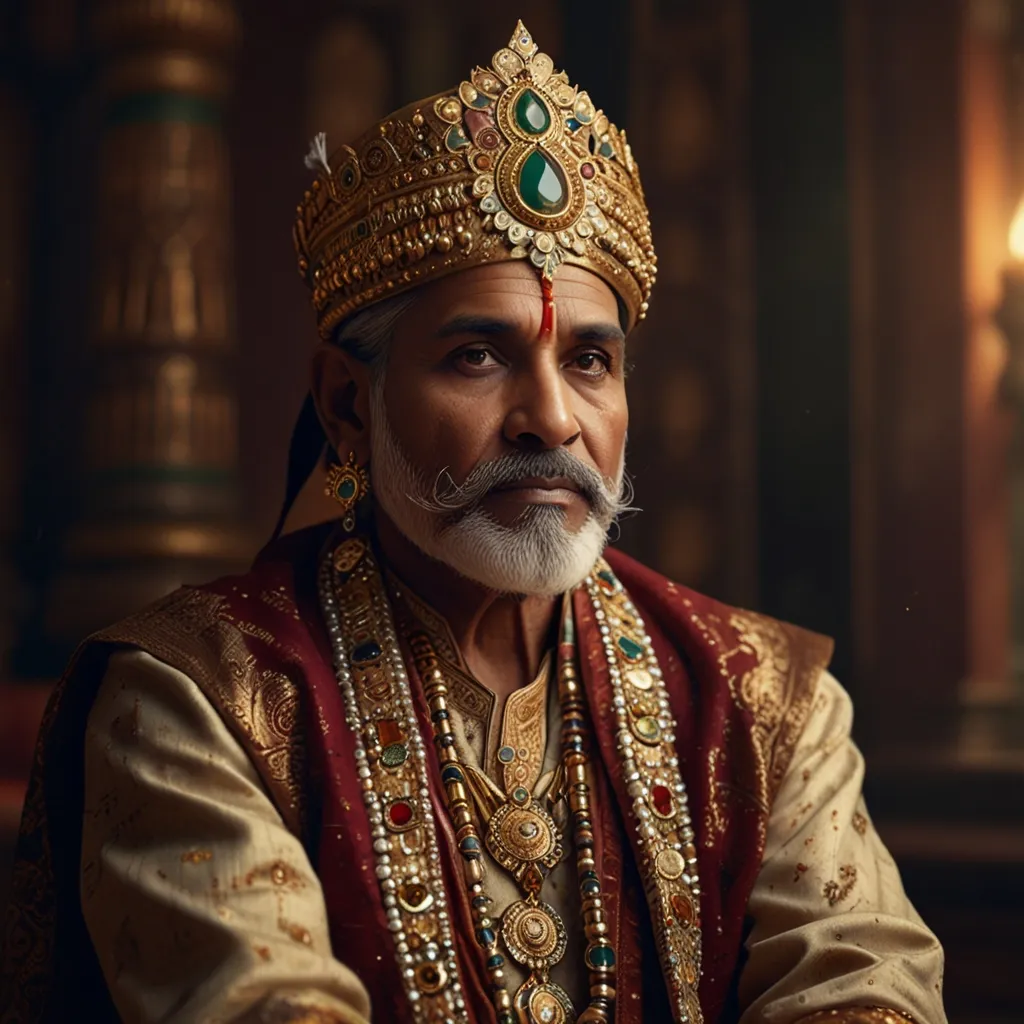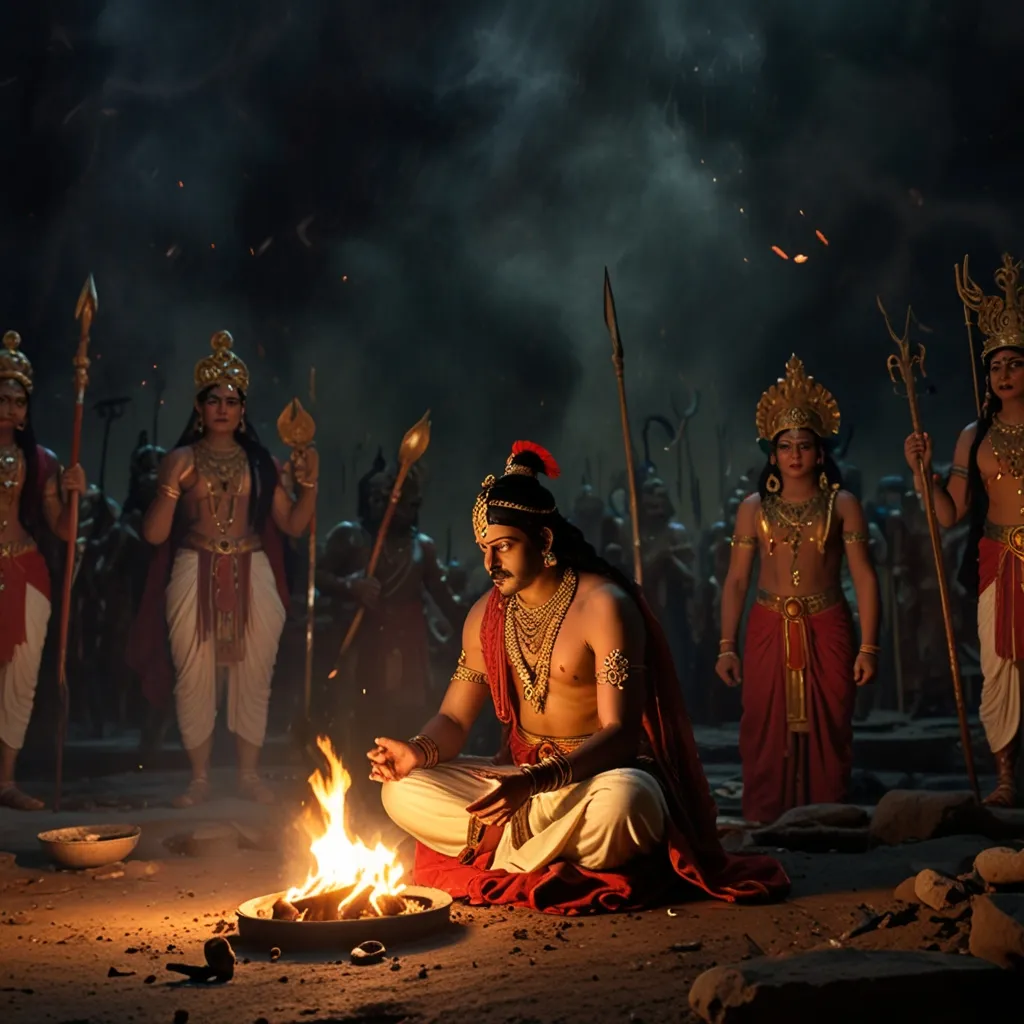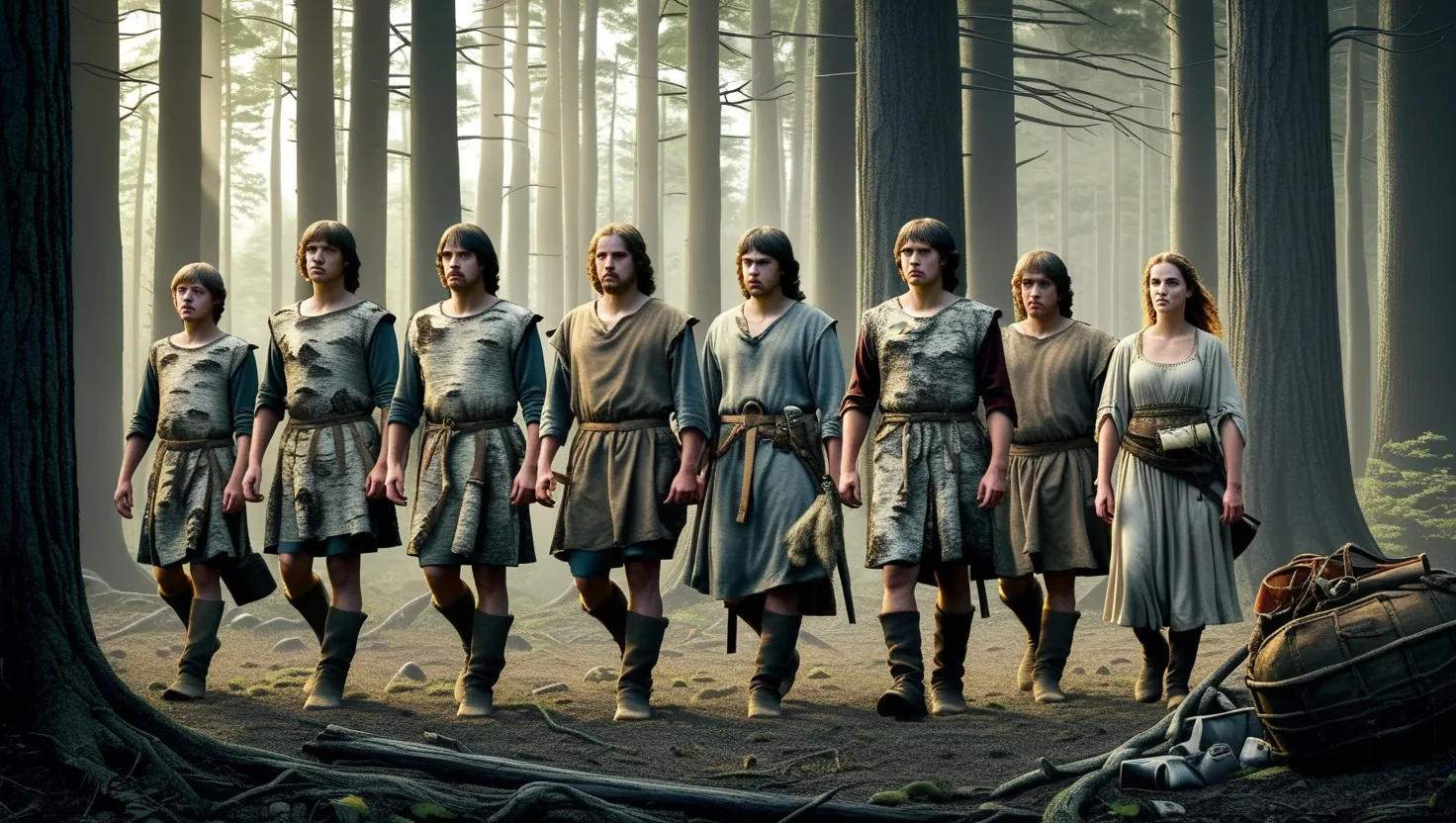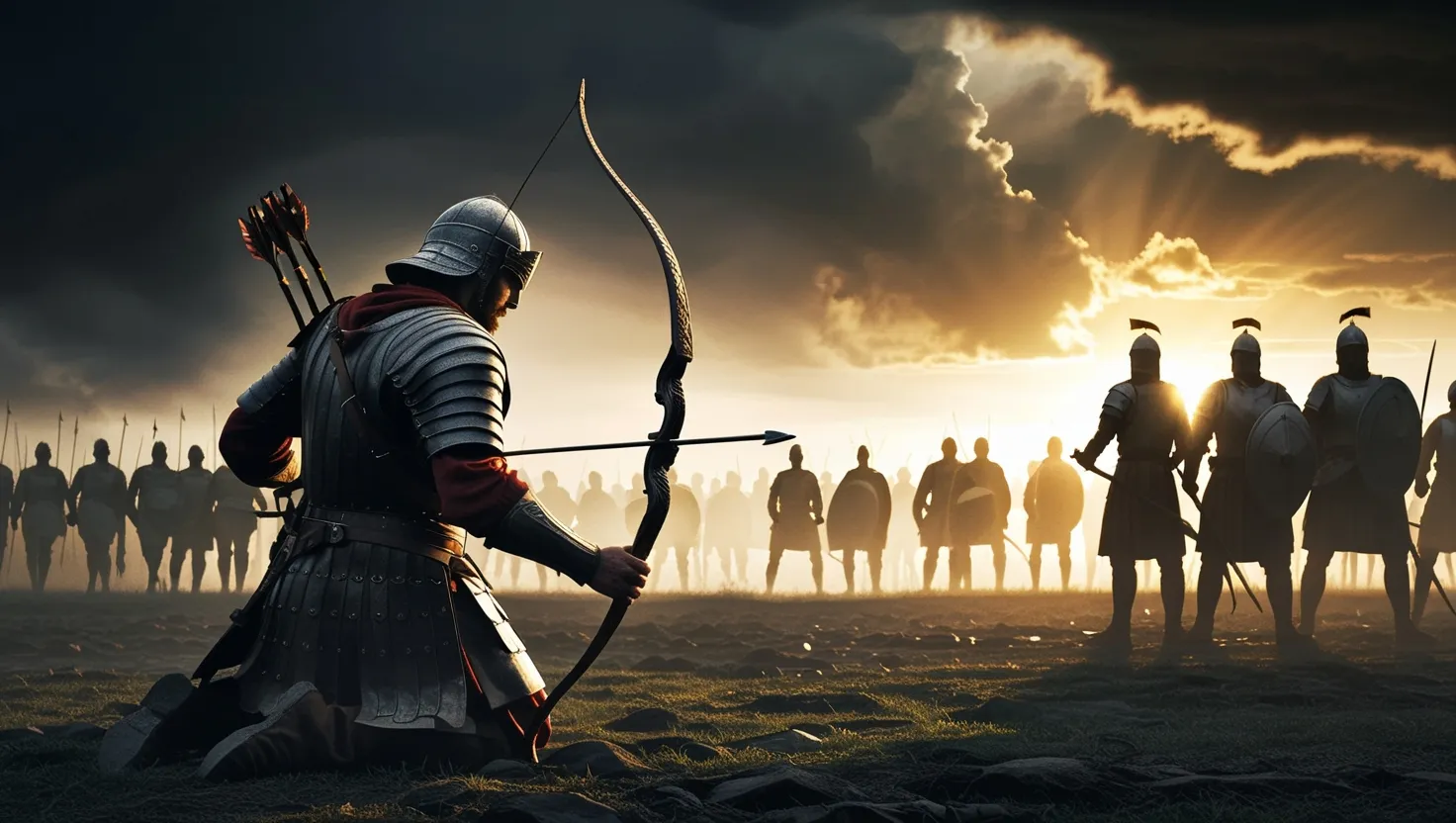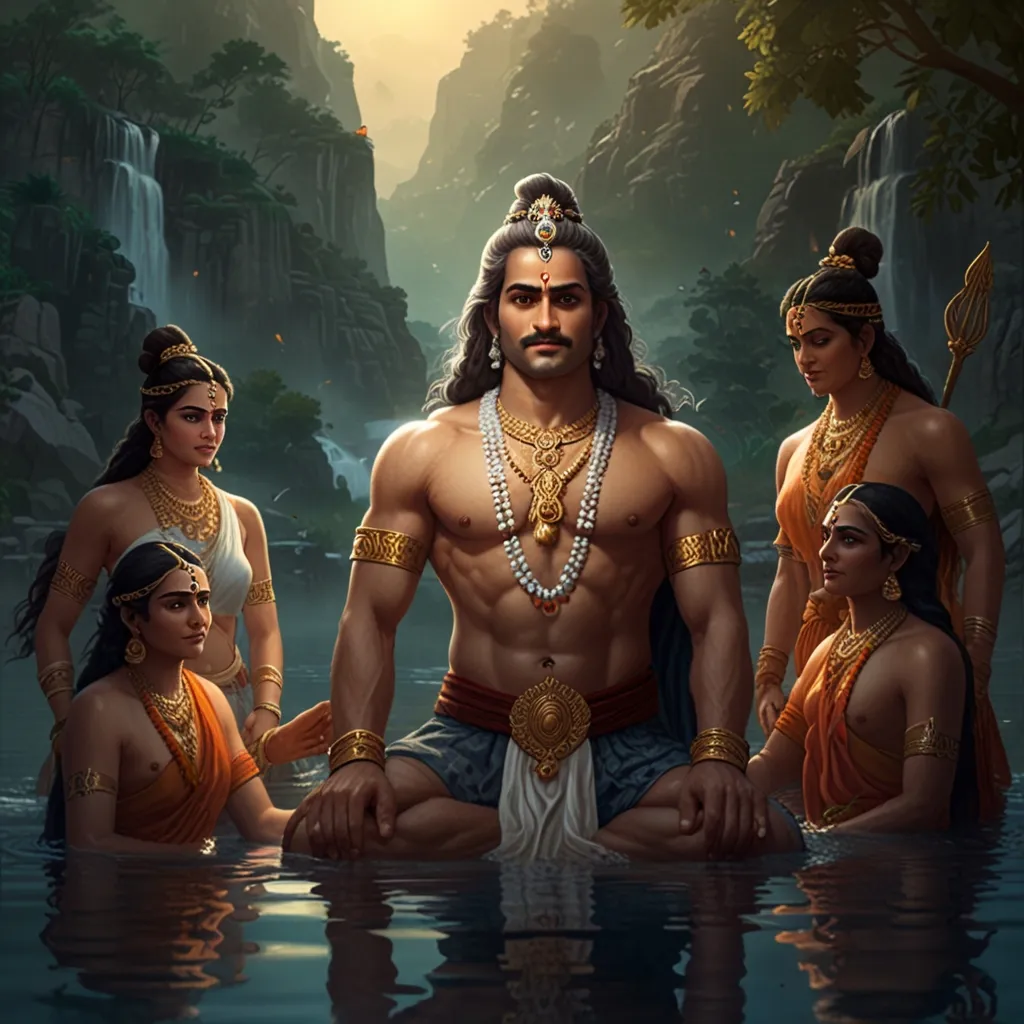The Mahabharata, an ancient Indian epic, weaves a rich tapestry of human experiences, moral dilemmas, and cosmic laws. At its core lies the profound concept of karma - the universal principle of cause and effect that governs our actions and their consequences. As we delve into this timeless narrative, we uncover the intricate dance of karma and justice that shapes the destinies of its characters and offers timeless wisdom for our own lives.
In the grand halls of Hastinapura, where the seeds of conflict were sown, we witness the birth of actions that would echo through generations. The epic begins with a simple act - a game of dice. Yet, this seemingly innocuous event sets in motion a chain of events that would lead to the greatest war the world had ever seen. As the dice roll, we’re reminded of the unpredictable nature of karma. How often do we make choices, thinking them inconsequential, only to find they ripple outward with unforeseen consequences?
The story of Draupadi, the fire-born princess, offers a poignant illustration of this principle. Her laughter at Duryodhana’s misfortune in the palace of illusions might have seemed a small slight at the time. But it planted a seed of humiliation that would grow into a poisonous tree of revenge, ultimately leading to her own public humiliation in the royal court. This incident raises an important question: How mindful are we of the potential long-term impacts of our words and actions, even those we deem insignificant?
“As a man sows, so he shall reap. This is the law of karma.”
These words, attributed to the ancient sages, encapsulate the essence of the karmic cycle. But the Mahabharata shows us that this ‘reaping’ is rarely straightforward. Take, for instance, the character of Karna. Born with divine gifts but abandoned at birth, his life becomes a complex interplay of merit and misfortune. His generosity and skill as a warrior are legendary, yet he finds himself aligned with the wrong side of the conflict. Does this not mirror the complexity of our own lives, where our noblest qualities can sometimes lead us astray?
The epic challenges our simplistic notions of good and evil, right and wrong. It presents characters who are neither wholly virtuous nor entirely villainous. Even the Pandavas, often seen as the heroes of the tale, are not immune to moral failings. Yudhishthira, known for his righteousness, succumbs to the temptation of gambling, risking not just his kingdom but the honor of his wife. This raises a profound question: In the grand scheme of karma, how do we reconcile our virtues with our vices?
As we follow the journey of the Pandavas through their years of exile, we see karma operating not as swift retribution, but as a gradual unfolding of consequences. Their adherence to dharma (righteous duty) in the face of injustice doesn’t immediately reward them. Instead, it shapes their character, preparing them for the challenges ahead. This long view of karma invites us to reflect: How often do we give up on doing the right thing because we don’t see immediate results?
“The wheel of karma is ever-turning, grinding slowly but exceedingly fine.”
This ancient proverb finds vivid expression in the Mahabharata. The epic spans generations, showing how the actions of one era bear fruit in another. The curse of Gandhari, uttered in the anguish of losing her hundred sons, doesn’t immediately affect Krishna. But years later, it contributes to the downfall of his entire clan. This generational aspect of karma poses a sobering question: What kind of world are we creating for future generations through our present actions?
The character of Krishna adds another layer of complexity to our understanding of karma. As an avatar of the divine, his actions often defy conventional morality. He advises Arjuna to fight against his own kin, arguing that it’s his duty as a warrior. He even suggests strategies that some might consider deceitful. This challenges us to look beyond simplistic notions of good and bad actions. Perhaps the intention behind an action, and its alignment with one’s dharma, are as important as the action itself in the karmic equation.
“Do your duty, but do not concern yourself with the fruits of your actions.”
This advice from Krishna to Arjuna in the Bhagavad Gita, a pivotal part of the Mahabharata, offers a unique perspective on karma. It suggests that while we’re responsible for our actions, we shouldn’t be attached to their outcomes. This detachment doesn’t mean indifference, but rather a recognition of the complex web of causes and conditions that influence results. How might our lives change if we approached our actions with this mindset?
The epic doesn’t shy away from showing the devastating consequences of negative karma. The Kauravas, driven by greed and jealousy, meet tragic ends. Yet, even in their downfall, we see the complexity of karma at work. Duryodhana, despite his many misdeeds, is granted a place in heaven for his valor as a warrior. This nuanced portrayal reminds us that karma is not a simplistic system of rewards and punishments, but a subtle force that takes into account the totality of our being and actions.
As the great war of Kurukshetra unfolds, we see karma operating on a cosmic scale. The battlefield becomes a crucible where the accumulated karma of generations comes to a head. Yet, even in this cataclysmic event, we see individual choices shaping destinies. Karna’s decision to give away his divine armor, Bhishma’s vow of celibacy, Drona’s partiality towards Arjuna - each of these personal choices plays a crucial role in the war’s outcome. This interplay of individual and collective karma invites us to ponder: How do our personal choices contribute to the larger currents of history?
The aftermath of the war provides some of the epic’s most poignant reflections on karma and justice. The victorious Pandavas find their triumph hollow, haunted by the cost of their victory. This bittersweet end challenges the notion that karma always leads to clear-cut, satisfying resolutions. Instead, it suggests that the workings of karma are often beyond our full comprehension. How do we find peace and purpose in a world where the consequences of our actions are not always clear or immediate?
As we step back from the epic’s vast canvas, we’re left with a profound appreciation for the complexity of karma. The Mahabharata shows us that karma is not a simple ledger of debits and credits, but a dynamic force that shapes the very fabric of existence. It operates across time and space, interweaving individual choices with collective destinies.
In our modern world, far removed from the mythic landscape of the Mahabharata, the concept of karma remains deeply relevant. It calls us to mindfulness in our actions, reminding us that every choice we make sends ripples through the web of existence. It challenges us to act with integrity and in alignment with our deepest values, even when the immediate consequences seem unfavorable.
The epic’s nuanced portrayal of karma also offers a valuable perspective on justice. It suggests that true justice is not always swift or obvious, but operates in subtle ways over long periods. This view can foster patience and a long-term outlook in our pursuit of justice, both personal and societal.
Perhaps most importantly, the Mahabharata’s exploration of karma invites us to embrace the complexity of life. It teaches us that our actions and their consequences are part of a vast, interconnected whole. By understanding this, we can approach our lives with greater wisdom, compassion, and responsibility.
As we close this exploration, we’re left with a final question to ponder: How might our world change if we, like the characters in the Mahabharata, lived with a keen awareness of the karmic consequences of our every thought, word, and deed?
![Karma in The Mahabharata: Life Lessons from Ancient India's Greatest Epic [2024 Guide]](/images/0a999c3b-810c-4aff-a665-ea12e78272a0.webp)
